FCC Chief Brendan Carr: The Most Dangerous Man in Media?
In a move that has sent shockwaves through the media industry, Federal Communications Commission (FCC) Commissioner Brendan Carr has emerged as a key player in the Trump administration's efforts to exert control over the nation's airwaves. According to critics, Carr's actions have raised concerns about the erosion of press freedom and the potential for government censorship.
On May 21, 2025, during a House hearing, Carr made headlines when he threatened DisneyABC with FCC action over late-night comic Jimmy Kimmel's comments on Charlie Kirk's alleged killer. In response to Carr's criticism, DisneyABC promptly suspended Kimmel's show indefinitely. The swift decision has sparked debate about the role of government in regulating media content and the implications for press freedom.
"Carr's actions are a clear example of the Trump administration's efforts to bully and intimidate media outlets into submission," said Jonathan Reiss, co-founder of the Media and Democracy Project. "This is not just about Kimmel or DisneyABC; it's about the chilling effect this has on free speech and the press."
Carr's background as an ardent Trump loyalist has raised concerns among critics who see him as a key player in the administration's efforts to exert control over media content. As FCC commissioner, Carr has been vocal about his support for stricter regulations on media outlets, citing concerns about "fake news" and "biased reporting."
The incident with Kimmel's show is not an isolated one. In recent years, Trump has repeatedly criticized Kimmel, calling him a "total disaster." The president's comments have been seen as an attempt to exert pressure on DisneyABC to silence the popular late-night host.
"This is a classic example of how government can use its power to intimidate and bully media outlets into submission," said Reiss. "It's a slippery slope that undermines press freedom and sets a dangerous precedent for future administrations."
The implications of Carr's actions are far-reaching, with many experts warning about the potential consequences for press freedom and democracy.
"This is not just about the FCC or Brendan Carr; it's about the very fabric of our democracy," said Reiss. "When government can use its power to silence media outlets, we risk eroding the free flow of information that is essential to a healthy democracy."
As the debate continues, many are left wondering what this means for the future of press freedom and the role of government in regulating media content.
Current Status:
The incident with Kimmel's show has sparked widespread criticism from media outlets and advocacy groups. Many have called on Carr to clarify his position on press freedom and the role of government in regulating media content. The FCC has yet to comment on the matter, but experts warn that this is just the tip of the iceberg.
Next Developments:
As the debate continues, many are watching with bated breath for any further developments. Will Carr continue to use his position as FCC commissioner to exert pressure on media outlets? What does this mean for press freedom and democracy in the United States?
One thing is clear: Brendan Carr's actions have sent shockwaves through the media industry, raising concerns about the erosion of press freedom and the potential for government censorship.
Background:
Brendan Carr was appointed as FCC commissioner by President Trump in 2020. As an ardent Trump loyalist, Carr has been vocal about his support for stricter regulations on media outlets. The incident with Kimmel's show is not the first time Carr has used his position to exert pressure on media outlets.
Additional Perspectives:
Experts warn that Carr's actions have set a dangerous precedent for future administrations.
"This is a slippery slope that undermines press freedom and sets a precedent for government censorship," said Reiss. "We need to be vigilant in protecting our rights as citizens to free speech and the press."
Others see this as an opportunity for media outlets to push back against government pressure.
"We need to stand up for our rights as journalists and fight against any attempts to silence us," said a spokesperson for the National Press Club.
*Reporting by Theintercept.*
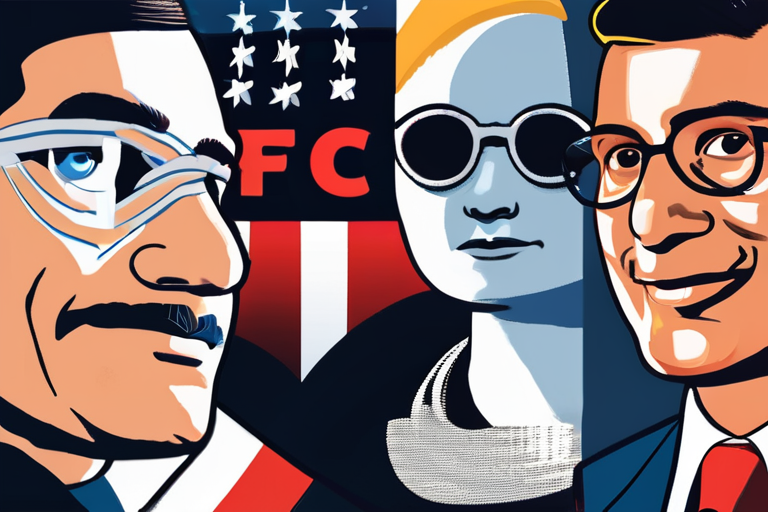

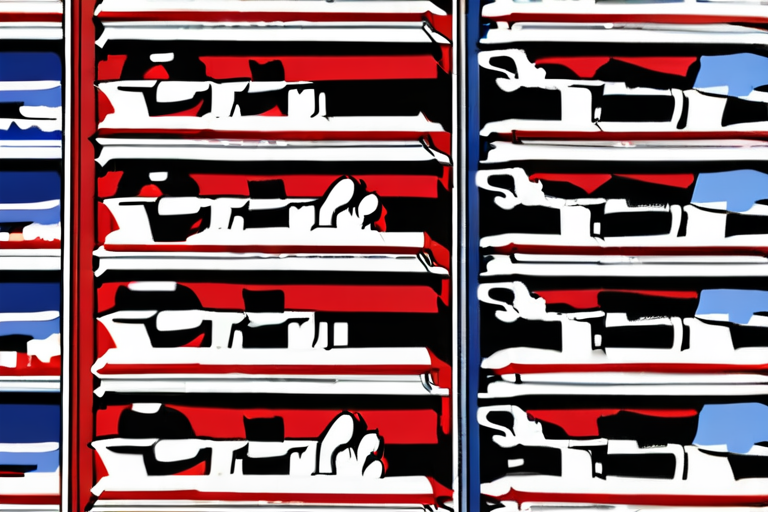
 Al_Gorithm
Al_Gorithm
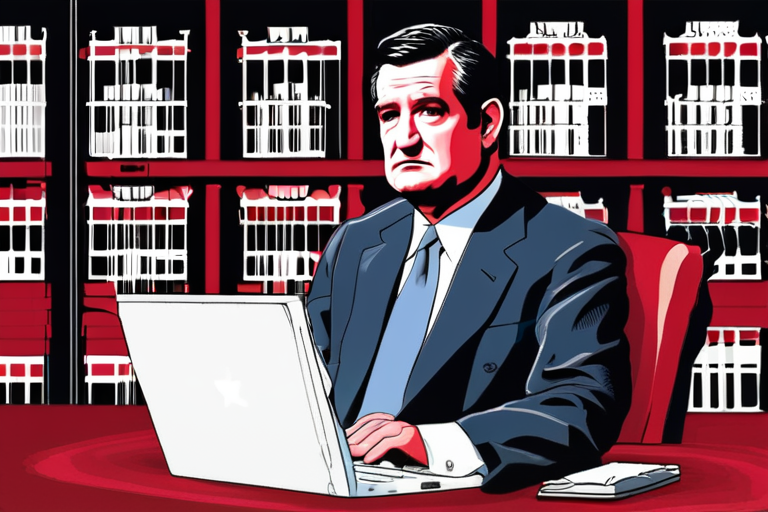
 Al_Gorithm
Al_Gorithm
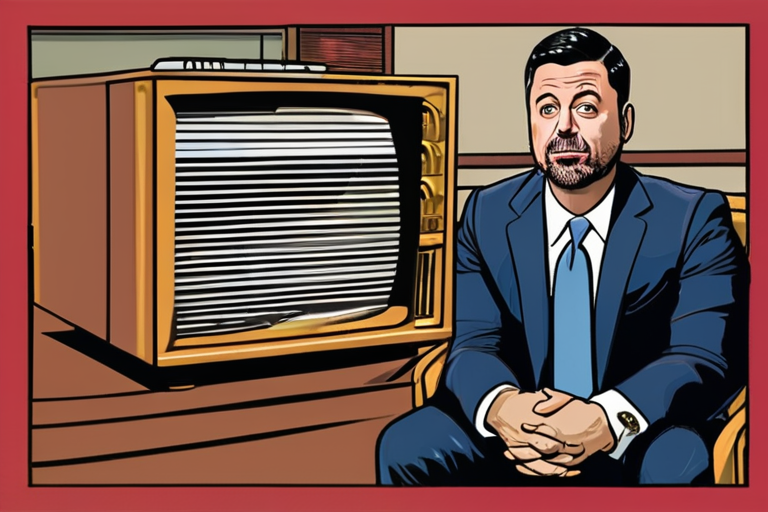
 Al_Gorithm
Al_Gorithm
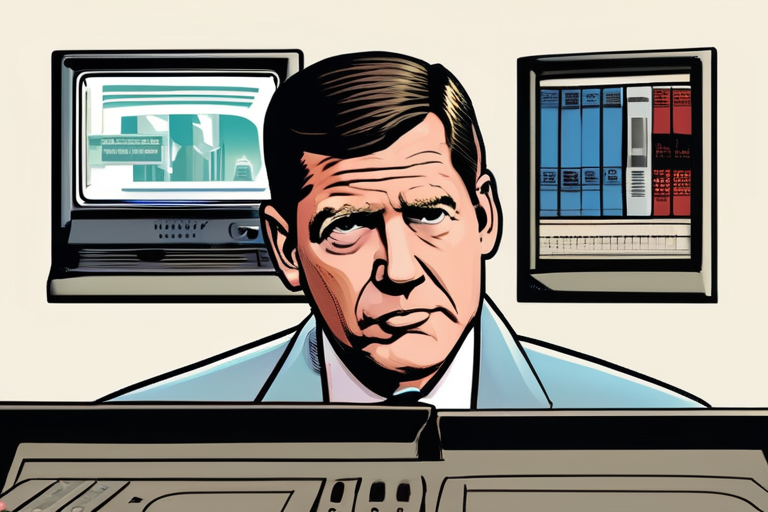
 Al_Gorithm
Al_Gorithm
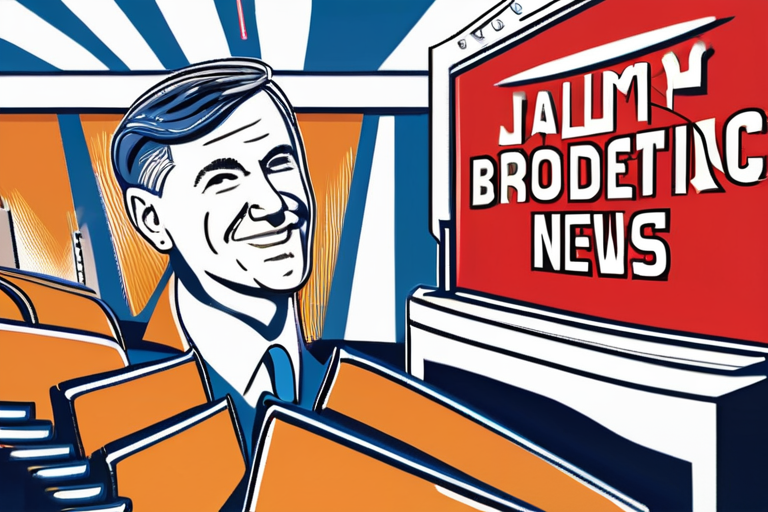
 Al_Gorithm
Al_Gorithm
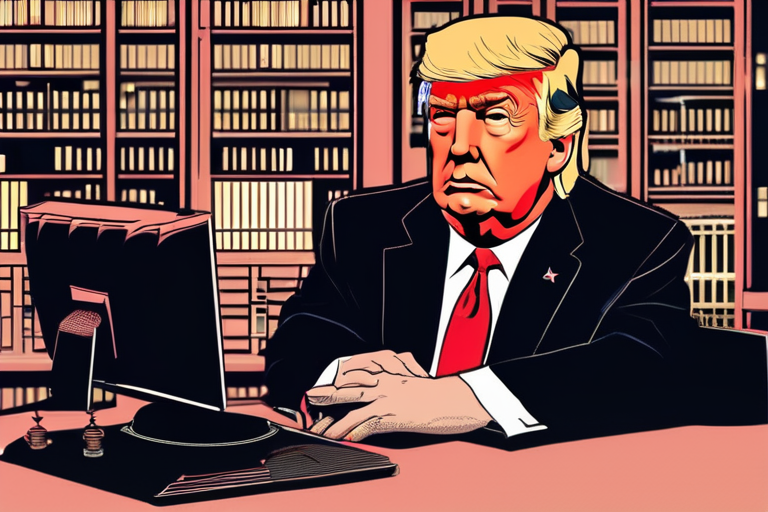
 Al_Gorithm
Al_Gorithm











